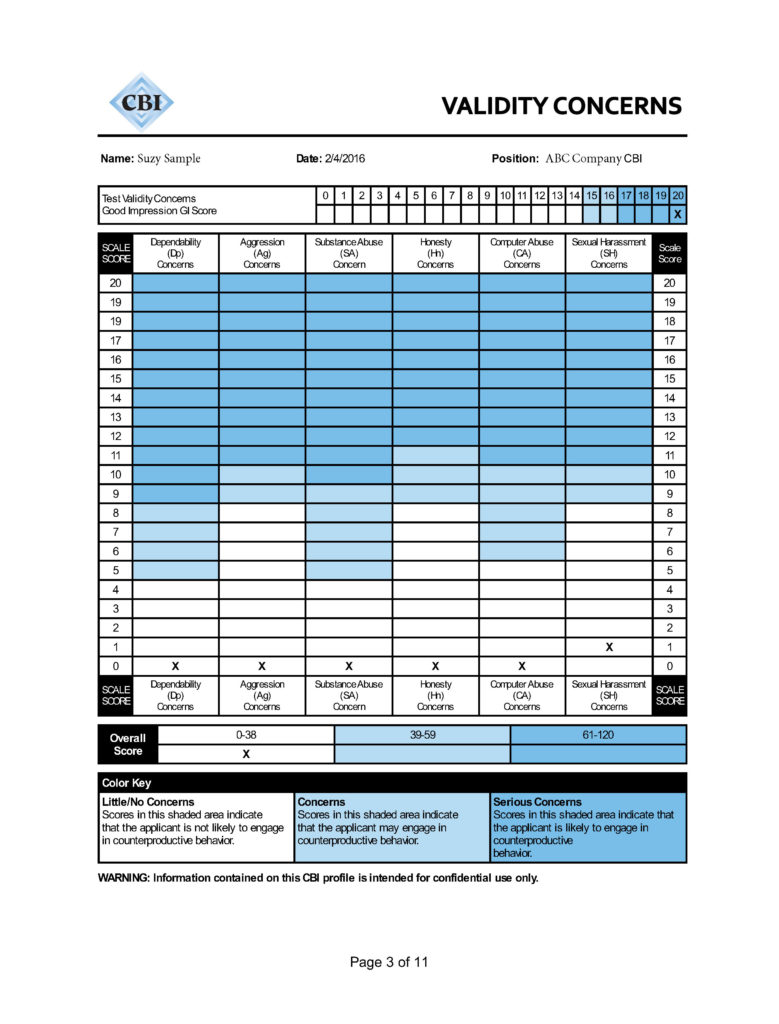The CBI Good Impression (GI) Scale measures an applicant’s tendency to underreport counter-productive behaviors on the survey.
The center image shows the Good Impression Scale at the top of the graph.
Understanding the Good Impression Scale
The Good Impression Scale of the Counter Productive Behavior Inventory (CBI) is an attempt to identify those test takers who are not answering the inventory questions honestly; rather they are concerned with making a good impression. The Good Impression Scale, like those of other efforts to identify invalid profiles asks a number of questions in which a ‘True’ answer is unlikely to be a truthful, for example, “I have never told a lie, even to spare the feelings of a friend.” It is highly improbable that anyone can truthfully claim to be so virtuous as to never have fudged on telling a close friend the truth, even when the friend prompts you to be “honest.”
High scores on the CBI Good Impression scale, that is, scores of 17 or above, thus raise the possibility that the test taker is shading his or her responses to the test items that, in all probability, have produced an invalid profile. Such high scores on Good Impression suggest that, if the test taker had been more honest in his or her responses, some of the scores on other scales would have been higher, perhaps in the critical zones of Concerns or Serious Concerns levels.

Nevertheless such high scores on the Good Impression scale do not mean that there is no useful information to be gained by studying the CBI profile. Rather these high scores suggest that scores on the other scales that are elevated but not in the critical zones are worthy of exploration. For example, when a test taker has a Good Impression score above 17, one should examine the profile to see if any of the other scales show some elevation even if they do not reach the Concerns or Serious Concerns levels. These areas should then be explored using the follow-up questions provided by the CBI manual.
If there are no such elevations, another options is to explore this area with such questions as “Tell me about how important it is to you to make a good impression on others, “ or by taking some of the Good Impression items found in the last pages of the CBI report and inquiring about their response. For example, “You indicated on the CBI that you have never done anything in anger that you have later regretted. Tell me about a time when you were really angry but held in your anger. How did you do that?”
The important thing to remember about the Good Impression Scale is that it is an attempt to identify attitudes that might invalidate the results. It is not infallible and scores on the Good Impression scale are simply a clue about the mind set of the test taker.
